Importance and Implementation of AI in Healthcare App Development

Introduction
The dynamic and challenging healthcare landscape witnessed a paradigm shift. Emerging technologies including AI and ML can act as catalysts in this shift. Today, healthcare services have expanded to reach our pockets through smartphones thereby integrating with our daily lives. Here, healthcare app development plays a vital role.
We will delve into the role of AI in healthcare solutions along with the way of its implementation. AI-powered healthcare applications can collect and analyze medical data, identify various patterns, and learn from insights. In other words, AI-driven apps are set to revolutionize every aspect of patient care.
Healthcare Mobile App Development enables healthcare institutions to leverage the benefits of AI. From booking appointments to accessing records, and managing medications to giving personalized experiences to patients- an AI-powered healthcare app works wonders. Moreover, AI-powered chatbots can provide patients with 24x7 assistance and health advice.
AI can also automate time-consuming tasks and enable healthcare professionals to focus on patient care. As this technology evolves, we can expect more transformative benefits from healthcare applications. Let’s understand the significance of AI in the healthcare sector along with the latest AI applications.
Importance of AI in Healthcare Sector
The healthcare mobile app development undergoes revolutionary changes thanks to the potent synergy of AI and mobile technology. The impact of AI resonates across every facet of healthcare ranging from diagnosis, treatment, and patient engagement.
Let's start with diagnostics. AI meticulously analyzes medical data (think X-rays, MRIs, etc.) to unearth hidden patterns to ensure accurate diagnoses. These days, one in three medical diagnoses are inaccurate, costing millions and impacting countless lives. But AI-powered image recognition systems boast up to 95% accuracy in detecting cancers.
AI empowers personalized medicine by crafting treatment plans for each individual. Its algorithms devour the patient's unique health data, from genetic makeup to lifestyle, and suggest the right treatment strategy. For example, in the case of chemotherapy dosages, AI can optimize them based on the patient's genetic profile to maximize efficacy.
Furthermore, AI-based virtual assistants can reduce patient wait times by as much as 30%. AI also supports remote patient monitoring by helping doctors keep a watchful eye on their patients from afar. Healthcare mobile apps can act as the most effective tool for patients to get the benefits of AI.
When used in healthcare solutions , AI lightens the load for healthcare professionals. It can automate administrative tasks like scheduling appointments and processing claims. It frees up doctors and nurses to focus on what truly matters – their patients.
The AI revolution in healthcare apps is a tangible reality transforming the present. Here are the top AI applications useful in the healthcare sector.
Latest AI Applications in the Healthcare Sector
There is no room for misdiagnosis or other human errors in the healthcare domain. Here, AI, with other technologies like ML and IoT, steps in with its ability to analyze massive amounts of data. Let’s dive into the latest AI applications in the healthcare sector.

Image Source: ideas2it
1. Diagnostic Applications
AI can enhance the efficacy of the diagnostic process in the healthcare application. It helps both doctors and researchers in analyzing and identifying various symptoms of different diseases. AI, together with deep learning, plays a crucial role in reducing diagnostic errors and improving the accuracy of the laboratory test’s outcome. Doctors can diagnose properly using such applications and save lives.
2. Medical Imaging
The healthcare industry counts upon medical imaging techniques for diagnosis. AI technology can take this concept to a new level by bringing higher automation. AI-powered applications can increase accuracy and assist physicians in identifying anomalies and diseases. These days, healthcare organizations use AI to detect neurological diseases and abnormalities in common medical tests like chest X-rays. It is also useful in detecting Diabetic Retinopathy (DR) and early diagnosis of cancer. We can expect that AI-powered applications will make diagnosis more accurate and effective through advanced medical imaging.
3. Pharmaceutical and New Drug
It all started in 2007, when researchers commissioned a robot, Adam, to detect the functions of yeast. Adam referenced millions of billions of data points to identify the functions of 19 genes within yeast with 9 accurate hypotheses. Today, AI-driven applications play a vital role in developing new drugs based on accurate data analysis and predictive analytics. AI also enables healthcare service providers to create the patient’s digital profile to understand immuno-sequence. Also, AI technology is useful for reproducible research in genomics, life science, and bioinformatics.
4. Medical Research
The healthcare industry faces a big challenge in terms of preventing the loss of valuable data across billions of data points. As the sector is not very capable of connecting crucial data points, it results in the delay of new drugs and lack of proper diagnosis. A new trend in the domain of medical research is to stop the data hemorrhaging using AI. This technology can break down data silos and process the necessary information in a short time.
5. Hospital Information System
A recent study among over 35000 physicians has revealed that 96% of patient complaints were related to the lack of support service and negative front-desk experiences. Today, most hospitals have HIS software to handle the appointment process and follow-ups of treatment. The software can work by integrating with EHRs. Healthcare app development services can use AI-based features to leverage the advantage of predictive analytics in real-time. AI-powered apps are also useful in solving operational challenges across various functions of the hospital.
6. Virtual Assistant
Virtual or AI assistants can interact with patients directly thereby saving valuable time for healthcare professionals. AI-based chatbots can provide healthcare-related information and resolve queries of remote patients. The NLP (Natural Language Processing) concept can take the services of virtual assistants to a new level. Voice-based AI platforms like Alexa can assist patients in scheduling an appointment and follow-ups effectively. We will see the combination of advanced features of evolving technologies in the future virtual assistants.
7. Nutrition
Food and nutrition apps have a lot of scope for AI and ML technologies. Be it offering a personalized experience to users or analyzing their daily activities, AI can come up with accurate analysis. Many nutrition apps have built-in AI features to give customized recommendations and useful suggestions based on the user’s lifestyle. Healthcare app development companies will blend healthcare and nutrition-related information in tailored apps with desired features.
8. Wearables
Fitness bands, smartwatches, and shoes are useful for maintaining health and fitness. Researchers and wearable device manufacturers look to gain an advantage from the increasing popularity of such products. Similarly, healthcare mobile app development companies also integrate the features and functionality related to wearables. Clinical-grade applications and fitness apps will offer features that work in sync with wearable devices. Physicians and healthcare service providers can get real-time data on the patient’s vitals and other necessary aspects through bespoke wearable applications.
9. Mental Health
As per an official survey, 1-in-4 people suffer from mental disorders. AI can effectively identify symptoms of such illness by analyzing the person’s tone and word choice. Also, AI-driven apps can give support to thousands of people who feel lonely. This technology can be useful as a friend and therapist to save the lives of such people. We can expect that healthcare solutions will address symptoms and issues related to mental illnesses more effectively in the future with the help of AI technology.
10. Emergency and Surgery
Robotic or robot-assisted surgeries are gaining popularity worldwide. Hospitals use robots for many procedures ranging from minimally invasive operations to open-heart surgery. Mayo Clinic has mentioned that robots help doctors perform their procedures with the utmost precision and control with higher accuracy. Robot-assisted surgical processes have fewer incidents of post-surgery complications and quicker recovery time as compared to manual processes. However, it is fair to mention here that proper implementation of AI technology is essential to leverage its benefits for your healthcare institution. Let’s discuss the ways of implementing AI in this sector briefly.
How to Implement AI in the Healthcare Sector
Careful implementation of AI is essential to unleash this technology's potential. Apart from this, selecting the right AI technology is imperative to make a customized healthcare app with the desired features. A renowned healthcare mobile development company can understand the app's goals and target audience accurately.
When it comes to implementing AI into the healthcare ecosystem, it is crucial to ensure the security of data. Both anonymization and encryption can safeguard patient privacy. Compliance with rigorous healthcare regulations, like HIPAA, should be in focus to ensure ethical and responsible data handling. AI-powered healthcare apps should be compatible with other prevalent standards. Finally, app users deserve clear explanations of data usage and AI functionality lies beneath the surface.
Seamless integration with electronic health records, medical devices, and hospital databases can make a difference. This interoperability can enhance convenience and save lives by making critical medical data instantly accessible for patients. Healthcare professionals can consider the implementation of AI solutions in many ways. Some effective ways include streamlining patient journeys, personalized medicine, prevention, and telemedicine.
Hope these strategies will help you gain the advantage of AI technology in improving patient care services and streamlining administrative tasks. Let’s check out some popular AI-driven healthcare app solutions.
GET FREE CONSULTATION ON CUSTOMIZED HEALTHCARE SOLUTIONS
Popular AI-based Healthcare Mobile Applications
AI is a toolbox brimming with possibilities, and the thriving healthcare sector is ready to reap the benefits of healthcare applications with built-in AI features. For example, powerful AI algorithms can spot tumors with hawk-like precision. Some other AI-driven algorithms contribute to enhancing human performance in diagnosis and treatment planning.
Here are some healthcare mobile apps that use the potential of AI.
1. Noom
It uses AI and psychology to craft personalized weight loss plans that trick users into embracing a healthier lifestyle.
2. Buoy
AI symptom checker of Buoy gives app users a clearer picture of what's going on without playing doctor.
3. Hucu.ai
This secure messaging platform keeps everyone connected, from doctors to nurses to patients for streamlining communication.
4. Sensely
This AI-powered platform checks vitals, records results, and relays them to your doctor, freeing up their valuable time.
These are just a glimpse into what AI can do to revolutionize the healthcare sector. You can consult a reputed healthcare app development company to build a robust AI-powered application.
Concluding Lines
Healthcare leaders recognize the significance of AI in the sector. However, it is of utmost importance that the mobile app development company considers prevalent regulations like HIPAA compliance while integrating AI features in the app. Hope this comprehensive post on the importance and implementation of AI in healthcare will remain useful in deciding to build a full-fledged AI-based healthcare app.
Silicon IT Hub is your trusted healthcare app development partner. You can hire mobile app developers from our in-house teams to leverage the benefits of AI and other emerging technologies for your healthcare organization. Want to discuss the scope of an AI-powered healthcare application? Contact us to improve your patient care services through advanced and tailored apps.





 Have an Idea?Let’s Build It Together!
Have an Idea?Let’s Build It Together!